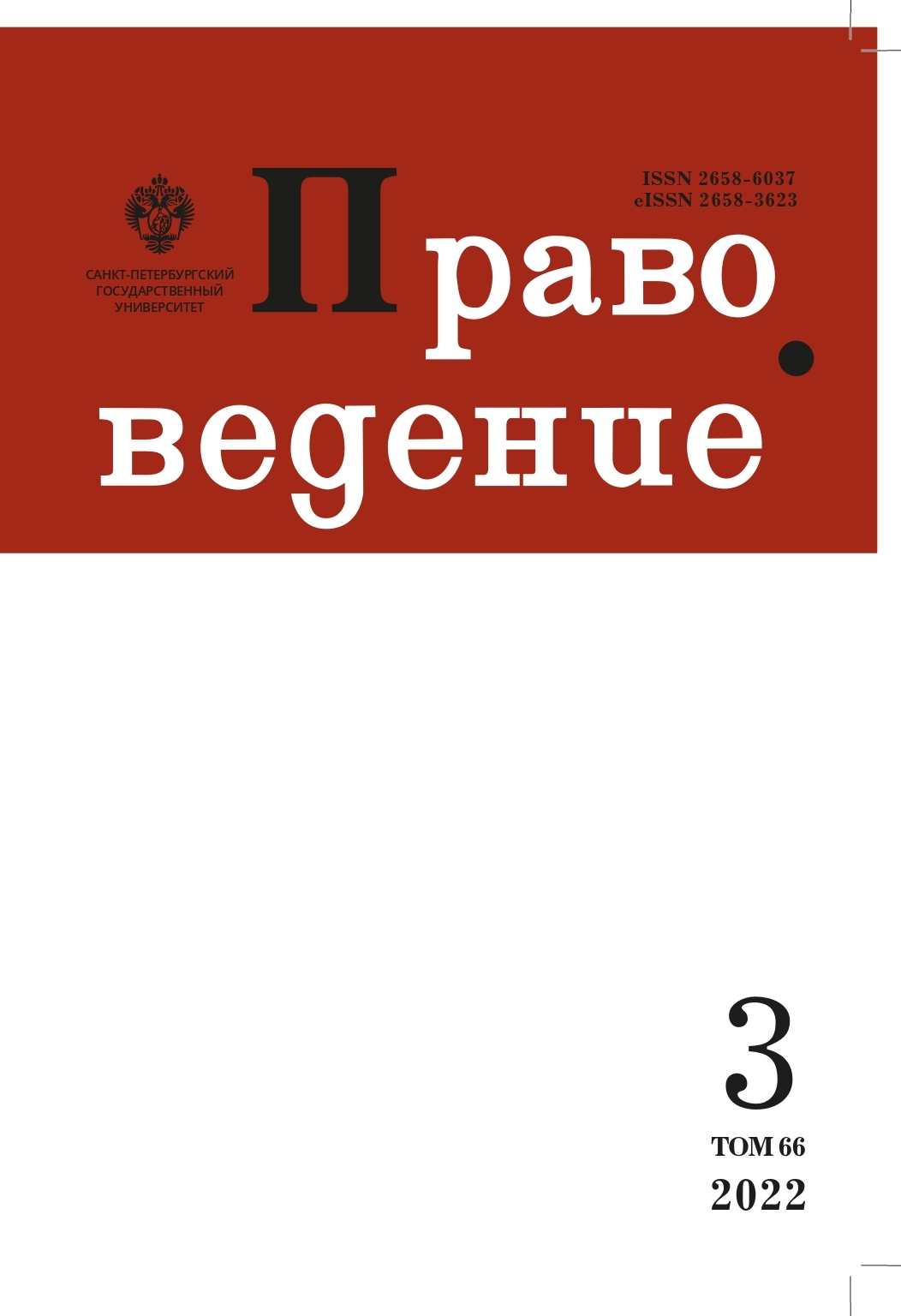The path forward for the housing lease system of reunified Korea
DOI:
https://doi.org/10.21638/spbu25.2022.304Abstract
South and North Korea have diametrically opposite property systems, the disparity of which is most evident in respect of immovables. While South Korea, a capitalist market economy, adopts an open market approach, North Korea under communist rule favors a heavily centralized and strictly regulated approach towards immovable property. Such a stark contrast will prove be very challenging in harmonizing the two systems if the time comes for reunification on the Korean peninsula. Although it is virtually impossible to predict the form and process by which reunification may occur, it is vital that we prepare for such an event. The objective of this paper is to do just that by considering some of the critical questions that are likely to arise in the process of harmonizing the property and housing systems of South and North Korea. One such question regards the matter of privatization. Given the general lack of housing in North Korea, we need to introduce special legislation in the Northern part of the Korean peninsula allowing for, as a rule, one house per household, at least during the initial stages of the reunification. Also, only those who are officially registered by the North Korean authorities as the lawful possessors of these houses should be recognized as being viable for acquiring house ownership. The other critical question addressed in the paper is the direction of reorganizing the housing lease system in post-reunification Korea. The current Housing Lease Protection Act of South Korea will be inadequate for applying in the North. The matters of its scope of application, the opposing power of the lessee, duration of lease, regulation of rent and the right to demand renewal of the lease contract are all dealt with in the paper.
Keywords:
housing, privatization, ownership, usage right, South Korea, North Korea, reunification of Korea
Downloads
References
Baek, Cheong-Hoon et al. 2021. Mechanisms of housing marketisation in North Korea. Habitat International 113: 2. (In Korean)
Frydman, Roman, Rapaczynski, Andrzej, Earle John S. et al. 1993. The Privatization Process in Russia, the Ukraine, and the Baltic States. London, Central European University Press.
Hong, Albert. 2012. The secret behind North Korean ID cards is … Radio Free Asia. Avaliable at: http://www.rfa.org/korean/in_focus/idcard-06202012153901.html?searchterm (accessed: 09.12.2016). (In Korean)
Kim, Chang-Kwon. 2010. Policy Implications for Korean Reunification of the Population Migration and Changes after German Reunification. Kyoungsang Law Review 28 (1): 51. (In Korean)
Kim, Sung-Wook. 2014. A Civil Law Review of the Protection of North Korean Housing Occupants. Kyounghee Law Review. 49 (2): 77–100. (In Korean)
Kim, Sung-Wook, Oh, Mee-Jin. 2016. The Protection of Lessees after the Privatization of North Koreans Housing. Ajoo Law Review 10 (3): 115–134. (In Korean)
Kim, Su-Han, Jo, Young-Kwan. 2010. A comparative study of housing privatization and reform in China and Russia. Sino-Soviet Affairs 34 (1): 155. (In Korean)
Naumann, Kolja. 2009. Distribution of Land Property in North Korea after Reunification: A Constitutional Point of View. North Korean Review. 5 (1): 79–80.
Ministry of Justice (Republic of Korea). 2011. The current situation of the housing system in North Korea. A study report of the situation in North Korea. Seoul, Ministry of Justice. P. 115. (In Korean)
Ministry of Unification, National Institute for Unification Education. 2015. 2016 Understanding North Korea. Seoul: National Institute for Unification Education. 313. (In Korean)
Moon, Heung-Ahn. 2017. Changes in North Korean Real Estate Market Reflected on North Korea Housing Act and its Implications on Reunification. Journal of Comparative Private Law 24 (2): 734. (In Korean)
Park, Hee-Jin. 2021. The Current Status of Housing Construction and Residential Environment in North Korea. Bobogeonbokji-porum 298: 37–40. (In Korean)
Park, Keun-Young. 2010. Common sense and solutions of lease of houses and commercial buildings. Seoul, Bubmoon Books. (In Korean)
Shin, Min-Young, Choi, Moon-Bak. 2015. Main Issues of the Economy after Reunification Based on the German Experience. LG Business Insight 1335: 15–16. (In Korean)
Downloads
Published
How to Cite
Issue
Section
License
Articles of "Pravovedenie" are open access distributed under the terms of the License Agreement with Saint Petersburg State University, which permits to the authors unrestricted distribution and self-archiving free of charge.




